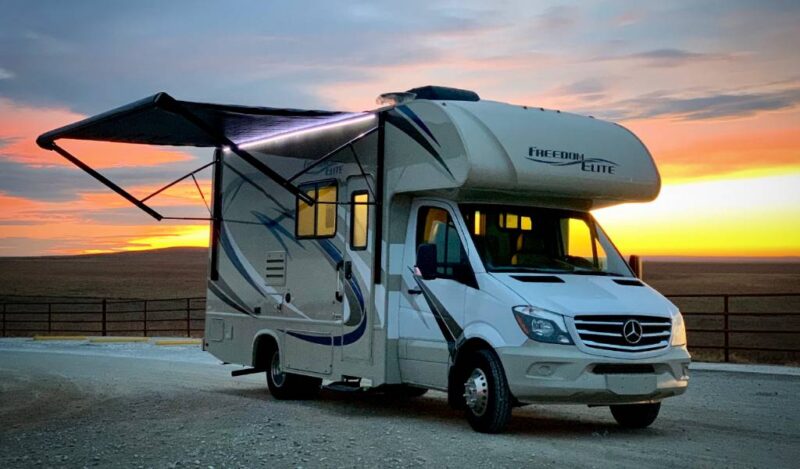
Best RV Tips to Make the Most of Your Trip
So, you’ve planned your trip, picked the perfect RV that will fit your and your family’s needs, and you’re ready to set off on your cross-country adventure. You’re excited to experience your new home-on-wheels and with it the memories you’ll make. However, without proper planning, some of those memories might be remembered more like nightmares. Preparing and taking precautionary steps to ensure your knowledge of RV travel beforehand will keep you and your family free from stress and potential harm.
Spatial Awareness
Retraining your muscle memory from that of an automobile to a bigger set of wheels is the first step to mastering maneuvers in your new rental RV. A lot of times people assume that an RV is just a car but larger – but this isn’t the case. Every RV driver comes into contact with awkward turns, tight spaces and tricky reversing, and it can be a challenge for even experienced drivers.
An excellent way to practice essential maneuvers before debarking on your trip is to drive your RV to an empty parking lot and place cones on the ground so that you can drive through them without knocking them over. This simple exercise will give you more confidence when it’s time for the real thing. If you are uncertain of your abilities at any time, don’t be afraid to use a spotter, so long as it’s safe. Extra precautions are never a bad thing and will save you the headache of shelling out money you saved for activities to instead pay for dreaded rental damages.
Securing Possessions
Once you’ve become comfortable driving your new rental, spend some time locking up and fastening what you’ve brought with you on your travels, especially items that are dangerous or expensive. Many who start out with recreational vehicles underestimate how much they bump around, especially on unpaved roads. Assume any items you take will end up on the floor, or worse, on a loved one.
As a rule, anything you would not want to fall on your head, store in lower cupboards and shelves; this includes things like heavy objects, sharp objects or breakables. Also, take note that items will shift in transit, so brace for anything on the top cupboards that could easily fall out when you go to reach for them.
Checking Clearance
One of the most important things to remember when traveling is a potentially deadly collision, not just in the case of incidents with other motor vehicles, but with overhead obstructions. Cars are free to go wherever there are roads, and drivers of those cars have the privilege of not having much to worry about in the way of head clearance. RVs, on the other hand, cannot go everywhere a car can. Low bridges and underpasses can be a costly mistake if you don’t know how high your rental is.
Looking at the RV’s owner’s manual or simply checking with your rental company are both good ways to ensure you know what you can and cannot go underneath. Using RV-specific GPS devices is another great way to guarantee the safest route with the least obstruction. It’s also important to note that bridges and underpasses are not the only instances where you might run into overhead problems. Gas station, outdoor drive-ups, and even trees should be looked out for; in these cases, it’s best to your better judgment.
Planning for Break Downs
No one thinks it will happen to them, but it does – at what seems like the most inconvenient of times. Occasionally you might find yourself in a predicament with your new rental; flat tires, engine issues, and dead batteries are all common causes of vacation disaster stories. Some problems can be prevented, but some require emergency roadside assistance.
Should you ever have issues, try to get yourself to the nearest and safest area to pull over. Depending on where your RV gives out can make getting help easy or difficult. Signal boosters can be a smart option for emergencies if you’re caught in a dead zone with no cell service. If you’re in a busy area, turn your flashers on and place any flares you have on the ground to warn other drivers and do your best to assess your exact location so that roadside assistance can get to you quickly. These tips can make these surprise situations a little less scary when it’s happening.
Driving an RV can be a fun and exciting way of travel, especially if it is your first experience. By double checking – and sometimes triple checking that you have prepared for the worst can give you peace of mind and make your travels more enjoyable. With less stress comes more time relaxing and enjoying yourself, your family and your new RV.
